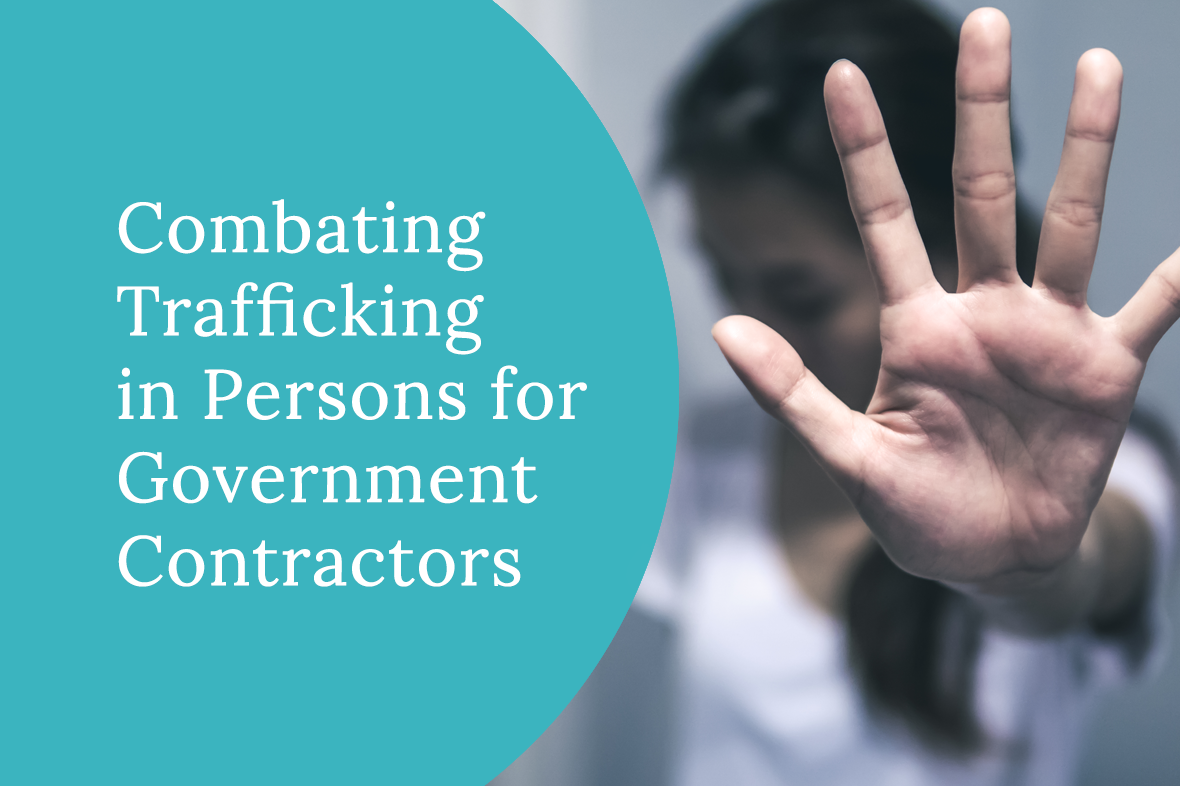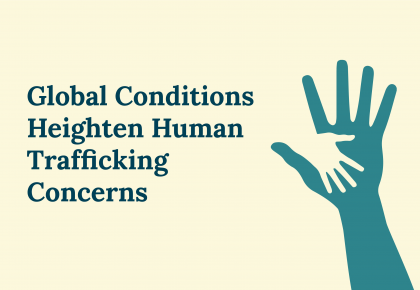Combating Trafficking in Persons for Government Contractors
Human Trafficking Compliance for Government Contractors: What You Need to Know
Human trafficking related to business remains a widespread social problem that escapes attention, partly because it’s the most vulnerable in society who are its victims.
The definition of human trafficking, or “modern-day slavery,” has evolved over the years. No longer does it exclusively refer to holding someone against their will to perform labor. A broader range of tactics are recognized as encompassing trafficking.
- Involuntary servitude
- Debt bondage
- Withholding travel papers or wages
- Using fraud or coercion to benefit from someone’s labor
Many countries have enacted laws against human trafficking. U.S. rules require businesses to place notices on their websites regarding actions to prevent and address human trafficking. New regulations require healthcare, hospitality, and transportation organizations to take steps to prevent, stop, or raise concerns regarding suspected human trafficking.
The U.S. Government is serious about human trafficking prevention regarding the government contracting industry; it’s one of the few compliance topics with required training (along with data privacy and a drug-free workplace).
Government contractors must take several steps:
- Vet external recruiters for indications of human trafficking in past work and current practices.
- Avoid certain labor practices often considered part of human trafficking (such as practices regarding poor health and safety and substandard housing).
- Notify staff and agents about the U.S. Government’s prohibition on human trafficking .
- Take remedial actions for anyone failing to comply with the policy.
- Report credible allegations to the U.S. Government of human trafficking by the employer, employee, subcontractor, or agent.
- Include language prohibiting human trafficking in contracts with subcontractors.
If trafficking is identified, an organization’s penalties can be lessened with a robust human trafficking compliance plan or aggravated if lacking one.
A principal focus involves recruiting workers, as this is where trafficking generally occurs.
Training is a vital part of an effective human trafficking prevention program because:
- Labor migration has become more common.
- Human trafficking is already an invisible crime, especially if the victims don’t even realize they’re being trafficked.
- The definition of human trafficking has expanded over the years to include involuntary servitude, debt bondage, and coerced prostitution.
- Illegal activities may pertain to those conducted offsite or away from working hours, which may not be obvious.
- Subcontractors also must comply with human trafficking rules.
- Employees need to know the signs of human trafficking for it to be identified and stopped.
Given the significance to the U.S. Government of preventing human trafficking, it’s wise for any contractor or subcontractor to take compliance measures seriously and augment their human trafficking prevention program. Syntrio offers two training solutions to government contractors to help them implement a human trafficking compliance program.


